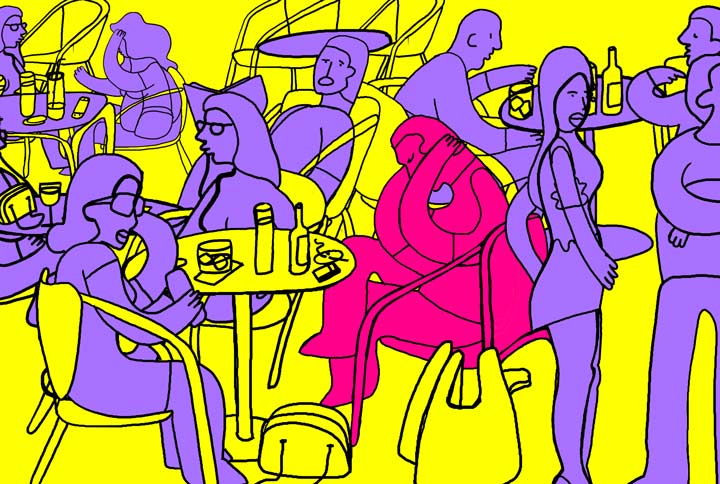
Do you feel extreme nervousness or discomfort in a social situation? Do you sweat or tremble when talking to new people at a party or meeting? If you’re often worried about embarrassing yourself, and work towards avoiding any form of socialising, you may be dealing with Social Anxiety Disorder.
While it may seem like social anxiety disorder is a new concept, it has been recognised for years now. A lot of celebrities have also opened up about dealing with this condition in the past, including Johnny Depp, Jennifer Lopez, Adele, Jennifer Lawrence, amongst others.
What is Social Anxiety Disorder?
Social anxiety disorder (SAD) or social phobia, is a condition where everyday interactions cause extreme anxiety. It comes from a fear of being judged by others and spills over other areas of life. Left unchecked, it could put a wedge in living a normal life.
How to recognise if you have SAD?
People with this condition may be mistaken to be unfriendly, disinterested, shy or awkward. When the fact of the matter is that they really want to make friends, be a part of groups, and engage in social interactions. But their anxiety comes in the way, and they may withdraw and hold themselves back completely.
The physical symptoms to look out for are: an upset stomach, nausea, trembling, sweating, difficulty breathing, strained muscles, dry mouth, fast heartbeat, the urge to constantly stare at one’s phone, etc.
Children may express symptoms in the form of crying, throwing tantrums, clinging to parents or being extremely quiet in social situations.
The common symptoms of this disorder include:
- excessive self-consciousness in normal social interactions
- constant worrying about embarrassing oneself
- fear of talking to new people
- intense apprehension about being negatively judged
- avoiding or trying to get out of social situations
- dislike of being the centre of attention
- expecting the worst experience before participating in a group setting
- worrying for days or weeks before an event
- finding it stressful to eat by oneself
- chronic insecurity and feeling out of place in groups
- alcohol-dependence to face social situations
SAD, if untreated, may lead to:
- low self-esteem
- confidence issues
- low assertion powers
- negative self-talk
- lack of social skills
- isolation
- substance abuse
- could lead to other mental health disorders
- and even suicide attempts
Causes
While there is no cause that can be exactly attributed to causing social anxiety, research has shown that genetics and environment have a significant influence on this condition.
Bullying, family conflict and sexual abuse are experiences that could also contribute to this disorder.
A controlling or overprotective environment could also lead to anxiety development in children.
How to overcome SAD?
While it may seem that dealing with this condition isn’t in your control, in reality, there are many things you can do to reduce the symptoms.
- Identify, analyse and challenge negative thoughts.
- Practice social skills like introducing yourself, giving compliments, etc.
- Avoid caffeinated drinks.
- Limit alcohol consumption.
- Quit smoking.
- Get enough sleep.
- Eat healthier.
- Exercise for at least 30 minutes, every day.
- Keep a journal.
- Take up a mindfulness meditation practice.
- Sign up for a public-speaking course.
Treatment
If you’ve tried the techniques mentioned above, and are still struggling with social anxiety, you could ask your trusted healthcare provider to recommend a therapist. Therapy has shown to work very well for treating SAD.
1. Cognitive behavioural therapy: This type of therapy is based on the premise that what you think affects how you feel, and your feelings affect your behaviour. So if you change the way you think, you’ll feel and function better.
2. Exposure therapy: This therapy works on gradually facing social situations.
3. Group therapy: This therapy helps you learn social skills and techniques to interact with people in social settings.
Medication may sometimes be prescribed by your health care provider to relieve the symptoms, but it’s not a cure. It is used to complement therapy and assist techniques that deal with the root cause of this disorder.
Social anxiety may be disrupting your life and may seem impossible to deal with, but a combination of self-help strategies and therapy will definitely help overcome this condition.
Have you suffered from social anxiety disorder? How did you deal with it, please share with us in the comments below.
We often discuss such topics on Malini’s Girl Tribe. To be a part of these conversations, join the Tribe here.

